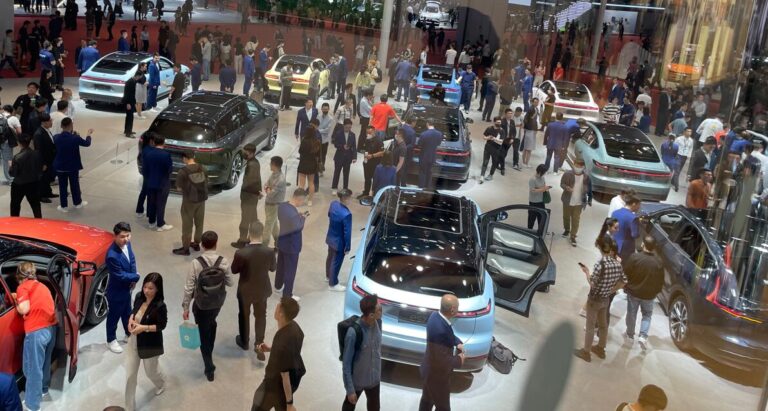China's cumulative tax exemptions for NEVs exceed RMB 200 billion by the end of 2022.
(Image credit: CnEVPost)
China today clarified its future purchase tax policy for new energy vehicles (NEVs), which is expected to exempt the industry from paying more than $70 billion in taxes over the next four years.
According to preliminary estimates, China's vehicle purchase tax exemptions will total RMB 520 billion yuan ($72 billion) from 2024-2027, Vice Minister of Finance Xu Hongcai said at a press conference today.
China will exempt NEVs with a purchase date between January 1, 2024 and December 31, 2025 from vehicle purchase tax, but the tax exemption for each new energy passenger vehicle will not exceed RMB 30,000, according to an announcement released today by the Ministry of Finance.
For NEVs with a purchase date between January 1, 2026 and December 31, 2027, the vehicle purchase tax will be levied at half the normal rate, with the tax reduction not exceeding RMB 15,000 per new energy passenger vehicle.
To support the development of energy-efficient vehicles, China first began exempting NEVs from purchase tax in 2014, a policy that has been extended several times in the past few years.
The standard vehicle purchase tax in China is 10 percent, which is what traditional internal combustion engine (ICE) vehicles currently face.
By the end of 2022, the cumulative size of China's tax exemption for NEVs exceeded RMB 200 billion, and the annual tax exemption is expected to exceed RMB 115 billion in 2023, Xu said in the press conference.
The vehicle purchase tax exemption policy brings more direct feelings to consumers and has a clear effect on promoting the development of the NEV industry and expanding consumption, he said.
The latest policy will have no effect on NEVs priced below RMB 300,000, and the parts exceeding RMB 300,000 will be subject to vehicle purchase tax, he said.
According to 2022 data, new energy passenger vehicles priced at RMB 300,000 and below account for roughly 87 percent of production, and these limits, in general, will have little impact on consumers and the market, according to Xu.
In addition, Chinese Vice Minister of Industry and Information Technology Xin Guobin said in the press conference that the country welcomes investment from companies from various countries and supports their cooperation with Chinese companies in areas such as solid-state batteries and autonomous driving.
At the same time, China also supports local companies to invest and build factories outside the country to bring China's advanced technologies and products abroad, so that people in more countries can enjoy the fruits of technological progress, Xin said.
($1 = RMB 7.1941)

